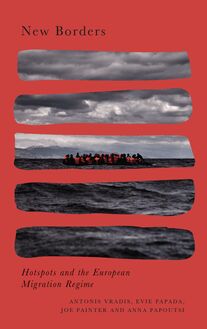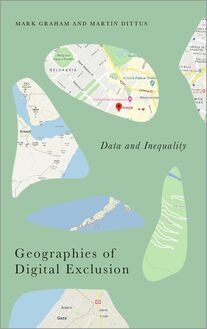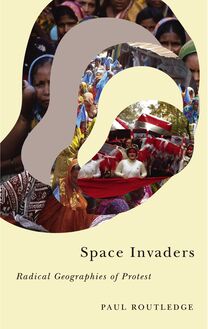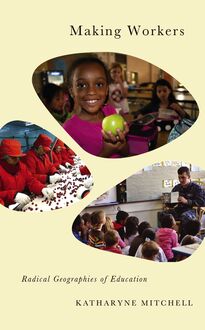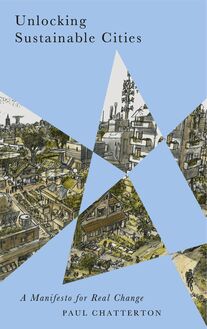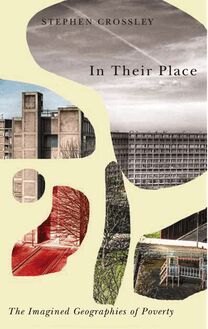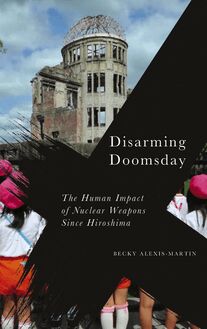New Borders , livre ebook
73
pages
English
Ebooks
2018
Vous pourrez modifier la taille du texte de cet ouvrage
Obtenez un accès à la bibliothèque pour le consulter en ligne En savoir plus
Découvre YouScribe en t'inscrivant gratuitement
Découvre YouScribe en t'inscrivant gratuitement
73
pages
English
Ebooks
2018
Vous pourrez modifier la taille du texte de cet ouvrage
Obtenez un accès à la bibliothèque pour le consulter en ligne En savoir plus
Publié par
Date de parution
20 novembre 2018
Nombre de lectures
0
EAN13
9781786803702
Langue
English
New Borders focuses on the Greek island of Lesbos. Since 2015, the island has come under intense scrutiny as more than one million people have disembarked on its shores.
During this time, the authors spent two years studying the changing meanings and functions of the EU's border. They observed how the reception of the refugees slid into detention and refuge became duress. Examining how and why this happened, they tackle questions on European policy, the securitisation of national and EU borders and the real impacts this has had on everyday life, determining who 'belongs' where and when.
List of Figures
Acknowledgements
Series Preface
Preface
Glossary
Introduction
1. The Where and When of Migration
2. Refuge, Rules and Rights
3. Governing Mobility
4. The Camps
5. The Sea is on Fire
Notes
Index
Publié par
Date de parution
20 novembre 2018
Nombre de lectures
0
EAN13
9781786803702
Langue
English
New Borders
Radical Geography
Series Editors:
Danny Dorling, Matthew T. Huber and Jenny Pickerill
Former editor: Kate Derickson
Also available:
Unlocking Sustainable Cities
A Manifesto for Real Change
Paul Chatterton
In Their Place
The Imagined Geographies of Poverty
Stephen Crossley
Making Workers
Radical Geographies of Education
Katharyne Mitchell
Space Invaders
Radical Geographies of Protest
Paul Routledge
New Borders
Hotspots and the European Migration Regime
Antonis Vradis, Evie Papada, Joe Painter and Anna Papoutsi
First published 2019 by Pluto Press
345 Archway Road, London N6 5AA
www.plutobooks.com
Copyright Antonis Vradis, Evie Papada, Joe Painter and Anna Papoutsi 2019
The right of Antonis Vradis, Evie Papada, Joe Painter and Anna Papoutsi to be identified as the authors of this work has been asserted by them in accordance with the Copyright, Designs and Patents Act 1988.
British Library Cataloguing in Publication Data
A catalogue record for this book is available from the British Library
ISBN 978 0 7453 3846 0 Hardback
ISBN 978 0 7453 3845 3 Paperback
ISBN 978 1 7868 0369 6 PDF eBook
ISBN 978 1 7868 0371 9 Kindle eBook
ISBN 978 1 7868 0370 2 EPUB eBook
This book is printed on paper suitable for recycling and made from fully managed and sustained forest sources. Logging, pulping and manufacturing processes are expected to conform to the environmental standards of the country of origin.
Typeset by Stanford DTP Services, Northampton, England
Simultaneously printed in the United Kingdom and United States of America
Contents
List of Figures
Acknowledgements
Series Preface
Preface
Glossary
Introduction
1 The Where and When of Migration
2 Refuge, Rules and Rights
3 Governing Mobility
4 The Camps
5 The Sea Is On Fire
Notes
Index
Figures
0.1 Map of the Mediterranean
1.1 Map of the Aegean Sea
1.2 Mural based on a photograph of Alan Kurdi
2.1 Map of the Schengen Area
2.2 Number of refugees and asylum-seekers in the countries of the European Economic Area in 2018
3.1 A ferry leaving Mytilene
4.1 Map of Lesbos
4.2 Migrants queuing
4.3 Daily life in the camp
5.1 World borders
Acknowledgements
This book is an outcome of Transcapes, a collective research project funded under the ESRC and DFID Mediterranean Migration Research Programme (project reference no. ES/N013700/1). The project was hosted by Durham University and Loughborough University. We would like to thank our good friends and colleagues on Lesbos, without which our research would not have been possible. We thank Elena Katseniou for her help with the field research and Christy Petropoulou for kindly hosting the project at the University of the Aegean s Urban Geography and Planning Laboratory. We would also like to thank Chris Orton for his cartographic work. All photographs are our own, except where noted.
Series Preface
The Radical Geography series consists of accessible books which use geographical perspectives to understand issues of social and political concern. These short books include critiques of existing government policies and alternatives to staid ways of thinking about our societies. They feature stories of radical social and political activism, guides to achieving change, and arguments about why we need to think differently on many contemporary issues if we are to live better together on this planet.
A geographical perspective involves seeing the connections within and between places, as well as considering the role of space and scale to develop a new and better understanding of current problems. Written largely by academic geographers, books in the series deliberately target issues of political, environmental and social concern. The series showcases clear explications of geographical approaches to social problems, and it has a particular interest in action currently being undertaken to achieve positive change that is radical, achievable, real and relevant.
The target audience ranges from undergraduates to experienced scholars, as well as from activists to conventional policy-makers, but these books are also for people interested in the world who do not already have a radical outlook and who want to be engaged and informed by a short, well written and thought-provoking book.
Danny Dorling, Matthew T. Huber and Jenny Pickerill
Series Editors
Preface
New Borders presents results from our two-year-long research project on Lesbos, conducted in the midst of the migration crisis by our collective, Transcapes. We are a team spanning human geography, urban studies, anthropology, social policy and sociology. We believe that the questions posed by the current transformation of Europe - under the pretext of managing the current migration crisis - cut across disciplinary lines and surpass the academic realm itself. We want our book to reflect this, which is also why we have opted to write for a general audience that is concerned and critical.
From applying for the grant that helped all this happen to day-to-day-administration, fieldwork, writing up and presenting our findings, all aspects of our project were run collectively. Transcapes is the result of team labour and decision-making. We achieved this by assigning roles to team members, who were then transparent about their progress to the rest of the team: rotating tasks, sharing all data and notes among us; collectively thinking about and writing up our findings, reflecting our experiences on the ground. This was a conscious choice that reflects our broader politics. Our aim was to go beyond academic and hierarchical ways of conducting research. We wanted to create - particularly for the more junior members of our team - the conditions for learning and contributing in an equal way: from presenting our key findings to funders to representing the team in conferences, and even in the way that we listed our team in the application grant that made all this possible to begin with. At each step of the process, we tried to break with the academic hierarchy and create a more inclusive and just research space for ourselves.
Ultimately, for all of us in the collective, Transcapes has been more than a research project. It is an experiment grounded in prior experiences of collective action that go as far back as the G8 and EU summit protest movements of a decade or two ago. As individuals we came together to research the politics of the EU s hotspot approach, motivated by our political understandings of migration struggles and the inherent violence and injustice of borders. But at the same time, doing Transcapes meant setting some basic parameters about both the knowledge we wanted to produce and the way in which we wanted to produce it, engaging with prior academic work on migration. This included making specific choices about the language we use, who we speak to and what processes we choose to analyse.
We have often been asked about our collective work model. Sadly, the state of atomisation and individualisation in academia (and to be fair, most if not all professional circles in the global West today) means that even in the most radical and critical quarters, genuine attempts to break through individual barriers are seen as something of a novelty, a slightly odd way of going about things. How do you share your data? we are asked. What happens with credit? And of course, Who leads in your decision-making? We are not claiming to have found a perfect formula, neither a clean slate away from tried-and-tested models in collective decision-making and work. And it wasn t always easy - tensions are an inevitable, but a valuable part of the learning curve. But in all honesty, we couldn t quite see another way of going about this. Put simply, the ramifications of the management of the migration crisis by the powers that be are sure to affect all of us in ways that we might for the time being not be able to fully understand, or even imagine. And so it seemed apt, necessary even, to apply and combine our collective knowledge, our experience and our skills to grapple with what was coming our way. New borders, after all, new barriers drawn, mean we will find unexpected and previously distant allies standing next to us as they or we join the armies of the excluded. To practice collective decision-making and acting, to learn how to work alongside one another despite, through and thanks to our differences is most probably one of the most valuable things that we discovered in this project.
Glossary
CEAS (Common European Asylum System). A set of EU laws completed in 2005, setting out minimum standards and procedures for processing and deciding asylum applications, and for the treatment of asylum-seekers and those recognised as refugees.
Dublin III Regulation. An EU law approved in 2013 that determines the member state responsible for examining an application for asylum-seekers seeking international protection under the Geneva Convention.
EASO (European Asylum Support Office). An institution formed in 2011 to strengthen the cooperation of EU member states on asylum, enhance the implementation of the CEAS, and support member states under particular pressure.
EBCG (European Border and Coast Guard Agency), also known as Frontex. An EU agency headquartered in Warsaw, Poland, and tasked with border control of the Schengen Area in coordination with the border and coast guards of Schengen Area member states.
EC (European Commission). The EU institution responsible for proposing legislation, implementing decisions, upholding EU treaties and managing day-to-day EU business.
ECJ (European Court of Justice). The supreme court of the European Union in matters of EU law.
EEA (European Economic Area). The area that came into existence in 1994 following the signing of the Agreement on the EEA. This agreement allows for the free movement of persons, goods, services and capital within the European Single Market. The agreement also incl
